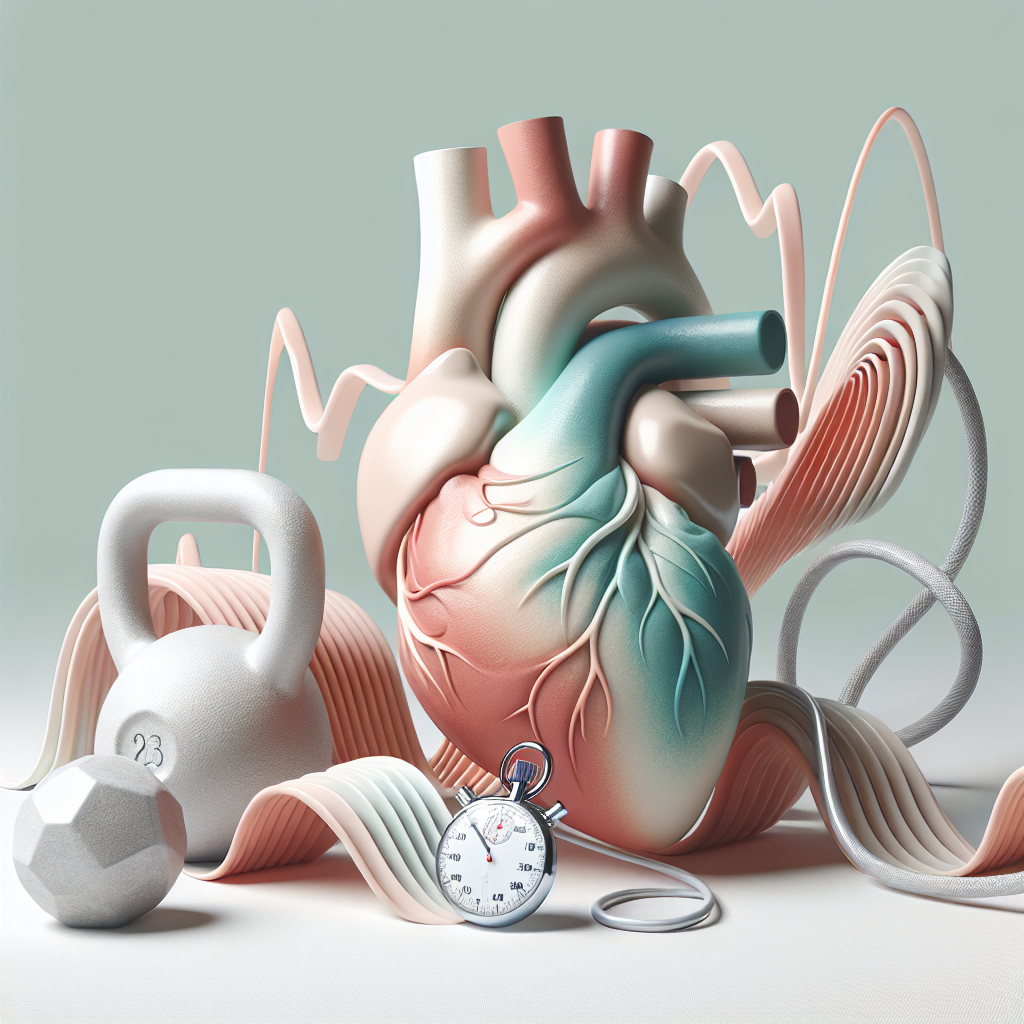### Understanding the Effects of High Intensity Interval Training on Cardiovascular Health
No matter what our age, status, or busy schedules, maintaining our health should always be our prime concern. Leading a heart-healthy lifestyle seems daunting but it is thing of the utmost importance. One of the effective strategies recommended by health experts recently is High Intensity Interval Training (HIIT) – a type of exercise approach that alternates between intense bursts of activity followed by fixed periods of less-intense activity or even complete rest.
Although HIIT has been around for quite some time, understanding how it impacts cardiovascular health can encourage more people to integrate it into their fitness routine. This article will explore the science-backed benefits of incorporating HIIT workouts on cardiovascular health.
**1. Enhances heart health**
Various studies support the benefits of HIIT for heart health. A study published in the _Journal of American College of Cardiology_ revealed that individuals who participated in HIIT workouts showed significant improvements in cardiovascular health, including blood pressure, heart rate, and metabolic function. By pushing our heart to adapt to variable conditions, we’re making it stronger and healthier.
**2. Aids in Weight Loss and Metabolism**
Scientific research also demonstrates that HIIT workouts can enhance metabolism and aid in weight loss, which in turn, positively impacts heart health. Regular HIIT not only burns calories during workout, but also increases metabolic rate post-exercise, ultimately leading to effective weight and fat loss, reducing the risk of heart disease.
**3. Regulates Blood Sugar Levels**
Regulating your blood sugar levels is essential in maintaining a healthy heart. A research published in _Diabetologia_ showed that HIIT workouts effectively reduced blood glucose levels and improved insulin resistance more significantly than continuous workout, keeping heart diseases at bay.
Despite its benefits, HIIT is not suitable for everyone as it relies heavily on the existing state of health and individual’s physical capabilities. Therefore, before starting any new exercise regimen, please consult with a physician or a qualified health professional.
Remember, “Health is Wealth,” and every small step towards it counts. So, why not include HIIT in our routine for a healthier heart?
Here is a simple HIIT workout you can start with:
1. Warm up with a 5-minute walk.
2. Sprint for 30 seconds at your maximum effort.
3. Walk or jog at a slow pace for 1-2 minutes.
4. Repeat this for 10-20 minutes.
To conclude, health professionals recommend exercises like HIIT for improving cardiovascular health — but it’s not a cure-all remedy. Maintaining a balanced diet, regular check-ups, and reducing stress are also critical components to sustaining overall heart health. Always consult with a qualified professional before attempting any new exercise routine, and remember — a small change to your daily routine can make a big difference to your heart!
**Stay active, stay healthy!**
**References:**
1. Gibala, M. J., & Mcgee, S. L. (2008). Metabolic adaptations to short-term high-intensity interval training: a little pain for a lot of gain? _Exercise and sport sciences reviews,_ 36(2), 58-63.
2. Guiraud, T., Nigam, A., Gremeaux, V., Meyer, P., Juneau, M., & Bosquet, L. (2012). High-intensity interval training in cardiac rehabilitation. _Sports medicine,_ 42(7), 587-605.
3. Little, J. P., Gillen, J. B., Percival, M. E., Safdar, A., Tarnopolsky, M. A., Punthakee, Z., … & Gibala, M. J. (2011). Low-volume high-intensity interval training reduces hyperglycemia and increases muscle mitochondrial capacity in patients with type 2 diabetes. _Journal of Applied Physiology,_ 111(6), 1554-1560.
4. Weston, K. S., Wisløff, U., & Coombes, J. S. (2014). High-intensity interval training in patients with lifestyle-induced cardiometabolic disease: a systematic review and meta-analysis. _British Journal of Sports Medicine,_ 48(16), 1227-1234.
_Remember: If you have any medical conditions or chronic diseases, please check-in with a qualified health professional or your physician before engaging in any intense workout regimen._


